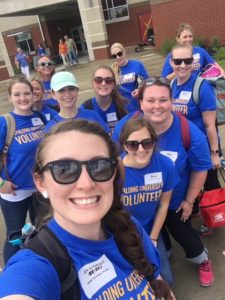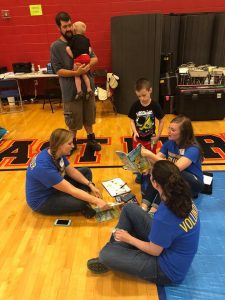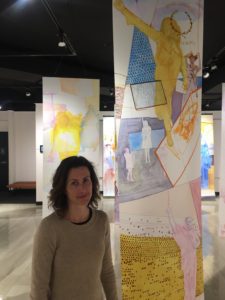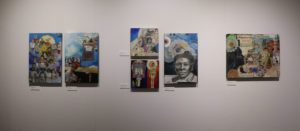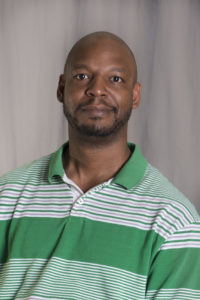School of Nursing faculty member Dr. Nancy Kern is helping battle the recent hepatitis A outbreak in a way that aligns with Spalding University’s mission of spreading compassion and serving underserved and vulnerable populations.
Kern, an associate professor in Spalding’s Master of Science in Nursing program, and her husband, Paul, who works for Louisville Metro Government’s Department for Public Health and Wellness, have spent a night or two per week for the past several months traveling around the city administering hepatitis A vaccines to homeless citizens.
Since November, Kern said, she’d given shots to about 450 people they’ve encountered in parking lots, under overpasses or in back alleys.
“I’m very aware that this is what the university’s mission is, and when I’m with my students, it’s just kind of reminding them, ‘This is what we’re called to do,’” Kern said.
Kern said she and her husband do their hepatitis A vaccine work, literally, out of the back of their car, attempting to approach homeless folks in an unassuming way so they’ll be more likely to participate.
The homeless can be among the most vulnerable to the hepatitis A virus due to a lack of sanitation in their living conditions. They also are at risk for hepatitis B and hepatitis C, and a co-infection with hepatitis A can have serious consequences.
But because drug use can be prevalent in homeless populations, those people tend to be leery of coming to a health department office or traditional brick-and-mortars medical facility to get a vaccine and or explain why they might be at risk. That led to the Kerns trying the mobile approach.
They offer food, some information about hepatitis and the opportunity to get a shot.
“If they’re not interested, it’s just, ‘OK, well, here’s some information,’” Nancy Kern said. “’If you know anybody who starts having these symptoms, tell them they need to get seen. Here’s some soap. Remember that hand sanitizer doesn’t work. You have to use soap and water to protect yourself.’ So we’re trying to do a lot of patient education but in a non-threatening, non-authoritarian way.”
Kern said she and her husband are happy to get two or three people vaccinated in a night, and over time, they hope that’ll build trust and get more people to participate when the Kerns show up again.
Kern is no stranger to working with the homeless, and she said she has “just always gravitated toward working with the underdog.” She has been a Red Cross volunteer since 1970 and has lived overseas and been exposed to folks living in extreme poverty.
“Many people just aren’t comfortable talking to somebody who’s homeless,” Kern said. “I’m not afraid of these folks. … I don’t care if they look disheveled. I don’t care if they haven’t had a bath in a while. I don’t care if they have a mental illness because my background is also in mental health.”
Kern has taken Spalding graduate and undergraduate nursing students with her on the hepatitis A street outreach trips and other service initiatives.
For example, Kern, assisted by four Spalding students, immunized 160 festival goers at the recent Pride Festival on the waterfront.
And last fall, Kern and Spalding undergraduate nursing professor Dr. Rebecca Gesler took a group of nursing students to Grundy, Va., to participate in the Remote Area Medical free clinic for underserved and uninsured individuals. The Spalding volunteers worked closely with dentists providing free dental care.
Kern said service learning is valuable to nursing students.
“With my students, they’re learning more about infection, about infectious disease, infection prevention with vaccination,” she said. “They learn patient education approaches.”
And as for working with homeless and other underserved populations, Kern said, “some students have never been confronted with something other than the life that they know. That’s what service learning is about.”
Kern has taught at Spalding for 10 years. A nurse practitioner who received her MSN and doctorate of education in leadership (EdD) from the university, Kern teaches graduate courses in health assessment, adult primary care and the theoretical foundations of nursing as well as a scholarly synthesis course in which she guides MSN students through evidence-based projects.
She is also in practice at Norton Occupational Medicine.
Asked in a recent interview during National Nurses Week why she thinks nurses should be appreciated, Kern said nurses have “the unique experience of being with you at the very best of times, like when your baby is born, to the very worst of times.”
“We enter a very sacred space with our patients,” she said.
More information | Read more about the historic Spalding School of Nursing
